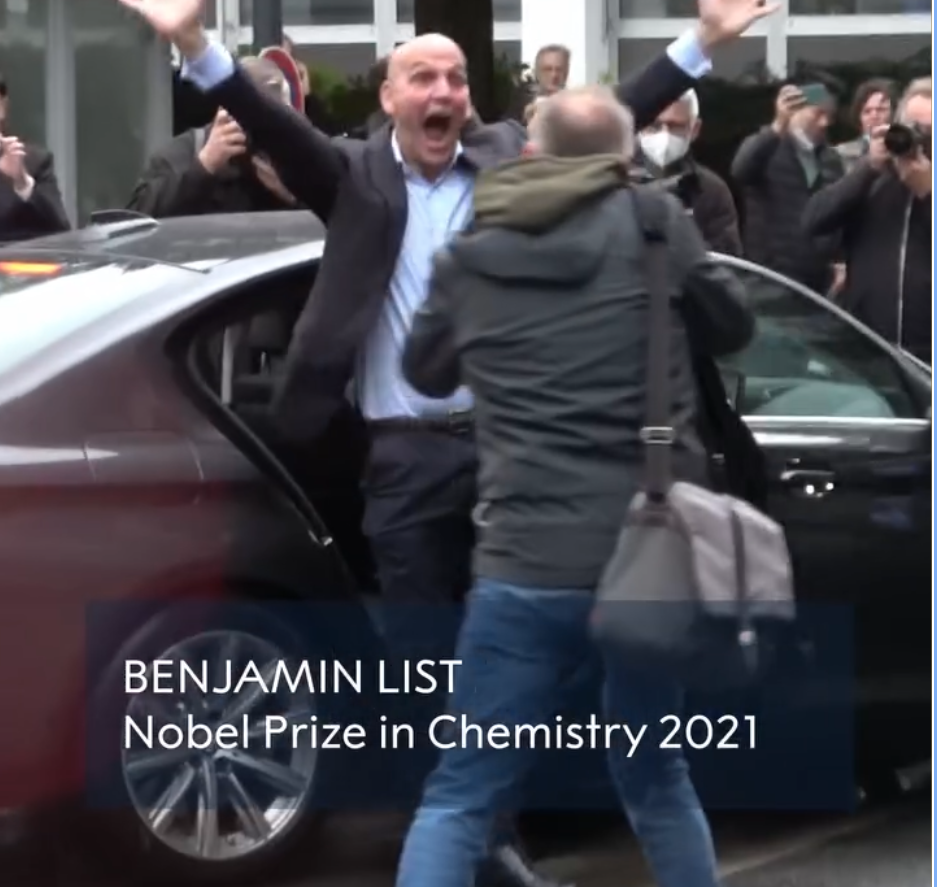In 2021, the Nobel Prize in Chemistry went to Benjamin List and David W. C. MacMillan for a breakthrough that looks simple but changed modern chemistry: asymmetric organocatalysis.
The Problem: Making the Right Hand
Many molecules that matter to us – medicines, fragrances, even flavors – have a trait called chirality, or “handedness.” Just like left and right hands, mirror-image versions of a molecule can look similar but act differently. One version can heal, while the other might harm.
For decades, chemists tried to solve this with:
- Enzymes – powerful biological catalysts, but large and fragile.
- Metal catalysts – efficient but often rare, expensive, and toxic.
The Discovery: Organocatalysis
List and MacMillan showed a third way. Small organic molecules, built from elements like carbon, nitrogen, oxygen, and sulfur, can also catalyze reactions. By designing them carefully, chemists could steer reactions to favor one “handed” product. This is what asymmetric catalysis means.
Think of it like this: Instead of needing a giant enzyme or a toxic metal complex, a small organic molecule can nudge atoms into place. Cheaper, cleaner, and smarter.
Why It Mattered
- Greener chemistry – avoids toxic metals and reduces waste.
- Cheaper and simpler – organocatalysts are stable and inexpensive.
- Scalable – high selectivity means industries can use it to make drugs and materials at scale.
Industry Impact
Pharmaceutical companies quickly adopted organocatalysis for making life-saving medicines with precision. Today it’s used in creating antivirals, antidepressants, agrochemicals, fragrances, and even new materials.
A Simple Analogy
Chemists once relied on supercomputers (enzymes) or nuclear reactors (metal catalysts). List and MacMillan showed that sometimes a pocket calculator (organocatalysts) does the job better – small, cheap, and powerful.
The Nobel Recognition
The Nobel Committee called organocatalysis “as simple as it is brilliant.” In two decades, it has reshaped how synthetic chemistry is done – making it cleaner, faster, and more creative.
TL;DR: Benjamin List and David MacMillan proved that small organic molecules can act as catalysts to produce the right-handed versions of molecules we need. This discovery made chemistry greener, cheaper, and more powerful – and that’s why it won the Nobel Prize.
The arrival of a rock star or a Nobel Prize laureate?
Benjamin List arrived to crowds of cheering colleagues and students after finding out he had been awarded the 2021 Nobel Prize in Chemistry. Who will be greeted this way this year? Stay tuned.
Video: Frank Wennmohs/ MPI für Kohlenforschung
